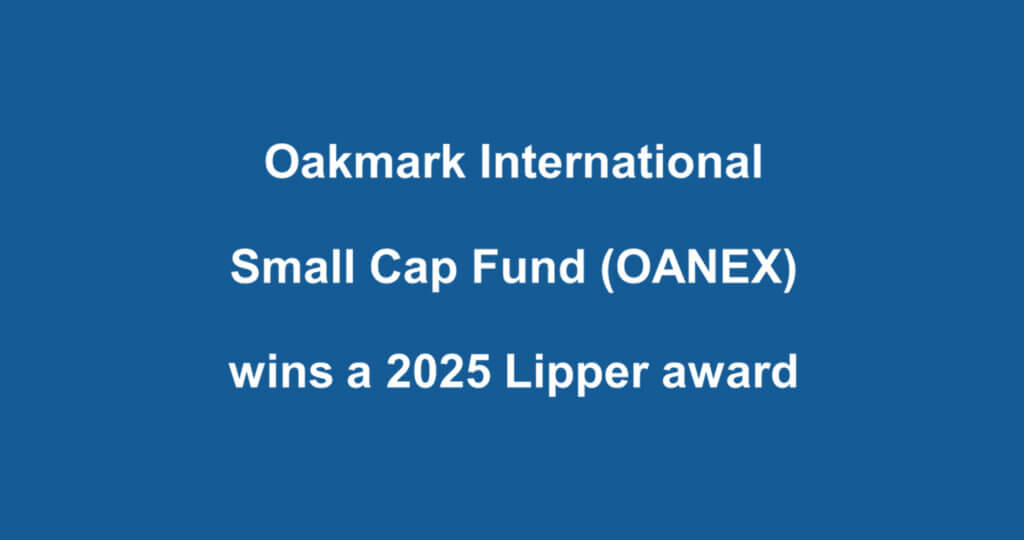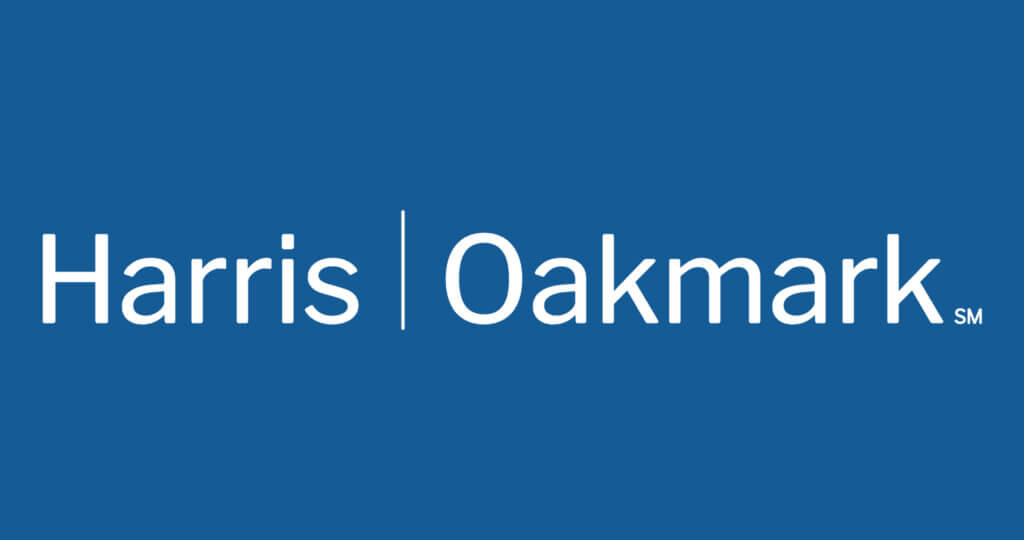Oakmark International Small Cap Fund - Investor Class
Average Annual Total Returns 06/30/14
Since Inception 11/01/95 10.82%
10-year 9.91%
5-year 16.37%
1-year 24.52%
3-month 2.26%
Gross Expense Ratio as of 09/30/13 was 1.35%
Past performance is no guarantee of future results. The performance data quoted represents past performance. Current performance may be lower or higher than the performance data quoted. The investment return and principal value vary so that an investor’s shares when redeemed may be worth more or less than the original cost. The performance of the Fund does not reflect the 2% redemption fee imposed on shares redeemed within 90 days of purchase. To obtain the most recent month-end performance data, view it here.
The Oakmark International Small Cap Fund returned 2% for the quarter ended June 30, 2014, underperforming the MSCI World ex U.S. Small Cap Index, which returned 3% for the same period. Since the Fund’s inception in November 1995, it has returned an average of 11% per year.
The top contributing stock for the quarter was Treasury Wine Estates, an Australian-based vineyard operator and winemaker that also has significant assets in North America, as well as a global marketing and distribution business. During the quarter Treasury Wine Estates received a preliminary, highly conditional bid from a global investment firm, Kohlberg Kravis Roberts (KKR), to purchase the company for AUD 4.70 per share. The bid was rejected, with management stating that the per-share offer amount undervalued the company. However, the board of directors indicated that the company would consider any new proposals that reflected a price closer to their perception of fair value. Discussions with KKR have since ended without any subsequent offers. We believe that management made the correct decision, as we too feel that the business value of Treasury Wine Estates is worth more than what KKR offered. We recently spoke with Treasury’s Chairman, Paul Rayner, and new CEO, Michael Clarke, with regard to this issue, in addition to recent management changes and a new AUD 35 million cost-cutting program, and we are confident that the company’s leadership team has been substantially improved and is working to increase Treasury Wine Estates’ overall value for the benefit of shareholders.
The largest detractor from the Fund’s performance for the past quarter was LSL Property Services. Despite a year-long rebound in the U.K. housing market, the share price of LSL declined during the quarter due to concerns about slowing transactional growth as a result of the rapid appreciation in U.K. home prices, coupled with the possibility that the Bank of England will increase interest rates. Although this may be true after the growth of the past year, over the medium- to long-term the U.K. housing transactional volumes remain well below normal, and LSL should continue to benefit from increased transaction volumes. Currently LSL is trading at less than 10x current years earning, and in our opinion it remains one of the Fund’s most compelling investment opportunities.
Portfolio Activity
We added two new names to the Fund this quarter, both Japan-based companies. Previous holding Ichiyoshi Securities provides investment and related financial services, and Sundrug is one of Japan’s largest drugstore chains. During the quarter we eliminated positions in CGG, Nihon Parkerizing, Cision and Vitec Group.
Geographically, our holdings in Asia increased to 25% by quarter end, primarily due to an increase in our Japanese weighting. The Fund has a 57% weight in Europe and a 13% weight in Australasia. The remaining positions are in North America, Latin America and the Middle East.
Because we continue to believe that some global currencies are overvalued, we maintained hedge positions on three currency exposures. As of the recent quarter end, we increased the Fund’s Australian dollar hedge to 37%, and have 47% of the Norwegian krone and 34% of the Swiss franc exposures hedged.
Despite this quarter’s modest underperformance, we believe the Fund contains high quality businesses trading at attractive prices. We expect the market will reward these companies in the coming quarters. We thank you for your continued support.
As of 06/30/14, Treasury Wine Estates Ltd. represented 2.5%, KKR & Co. L.P. 0%, LSL Property Services PLC 1.8%, Ichiyoshi Securities Co., Ltd. 0.4%, Sundrug Co., Ltd. 1.4%, Compagnie Générale de Géophysique Veritas (CGG) SA 0%, Nihon Parkerizing Co., Ltd. 0%, Cision AB 0%, and Vitec Group PLC 0% of the Oakmark International Small Cap Fund’s total net assets. Portfolio holdings are subject to change without notice and are not intended as recommendations of individual stocks.
Click here to access the full list of holdings for The Oakmark International Small Cap Fund as of the most recent quarter-end.
The MSCI World ex U.S. Small Cap Index (Net) is a free float-adjusted market capitalization index that is designed to measure global developed market equity performance, excluding the U.S. The MSCI Small Cap Indices target 40% of the eligible Small Cap universe within each industry group, within each country. MSCI defines the Small Cap universe as all listed securities that have a market capitalization in the range of USD200-1,500 million. This benchmark calculates reinvested dividends net of withholding taxes using Luxembourg tax rates. This index is unmanaged and investors cannot invest directly in this index.
The stocks of smaller companies often involve more risk than the stocks of larger companies. Stocks of small companies tend to be more volatile and have a smaller public market than stocks of larger companies. Small companies may have a shorter history of operations than larger companies, may not have as great an ability to raise additional capital and may have a less diversified product line, making them more susceptible to market pressure.
The percentages of hedge exposure for each foreign currency are calculated by dividing the market value of all same-currency forward contracts by the market value of the underlying equity exposure to that currency.
Investing in foreign securities presents risks that in some ways may be greater than U.S. investments. Those risks include: currency fluctuation; different regulation, accounting standards, trading practices and levels of available information; generally higher transaction costs; and political risks.
The discussion of the Fund’s investments and investment strategy (including current investment themes, the portfolio managers’ research and investment process, and portfolio characteristics) represents the Fund’s investments and the views of the portfolio managers and Harris Associates L.P., the Fund’s investment adviser, at the time of this letter, and are subject to change without notice.







